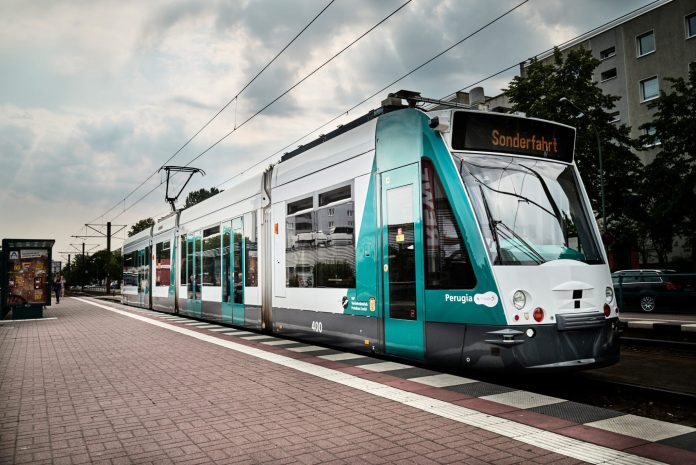The German firm said the trial will take place in the city of Potsdam in the coming weeks
Siemens Mobility, together with German firm ViP Verkehrsbetrieb Potsdam, plans to carry out a demonstration of what it claims to be the world’s first autonomous tram in the German city of Potsdam.
The two companies said a test tram will drive autonomously in real traffic conditions from September 18 to September 21.
ViP has provided a Siemens Combino tram for the project. This experimental vehicle, which had been only developed for research and development purposes, is equipped with multiple lidar, radar and camera sensors that serve as “digital eyes” by capturing the tram and its traffic environment.
Additionally, complex algorithms interpret and evaluate data from the momentary operating situation, providing a prognosis for further development of the situation, which triggers an appropriate response by the tram.
The tram also uses artificial intelligence to respond to trackside tram signals and stops. The tram reacts autonomously to hazards such as crossing pedestrians and other vehicles.
“Our autonomous tram can already master essential operating tasks in real road traffic at this stage of development. By relying on the ‘Siemens Tram Assistant’ collision warning system being used in, among other places, our Avenio M tram operating in Ulm, Germany, we have already reached series maturity – an important milestone on the way to autonomous driving. By making trains and infrastructure intelligent, we can guarantee availability and enhance safety in local and long-distance travel,” said Sabrina Soussan, CEO of Siemens Mobility.
The current project aims at identifying the technological challenges of autonomous driving under real-life conditions, then developing and testing solutions for them. Siemens Mobility said that it continues to analyse with VIP the next steps of this cooperation project.
Chinese firm develops autonomous driving bus
In related news, DeepBlue Technology, a Chinese firm focusing on artificial intelligence, has launched an autonomous driving vehicle, dubbed “Smart Panda Bus.”
The bus is equipped with Deepblue’s autonomous driving technology, computer vision, hand-palm recognition and an electric engine. The bus aims to combine unmanned intelligent transportation with an AI voice system that allows customers to interact with the vehicle.
“Nowadays, China’s urban traffic density is exponentially increasing as the population grows. Subway projects are also facing many challenges due to the large dimensions and cost of the construction work involved. Urban areas in big cities, like Shanghai and Beijing, are suffering from traffic jams and pedestrian congestion, making DeepBlue autonomous driving bus rapid transit (BRT) a more attractive option,” the company said in a statement.
“As a new public transportation method, the structure of the current Chinese transportation system will have to accommodate the development of closed safe trails to allow for the autonomous driving of vehicles like the Panda Bus. For instance, Shanghai has started making some structural changes by implementing several BRT pilot projects that aim to improve the public traffic conditions in central urban areas.”

